“I’m never going to get a job.”
Sound familiar? If you’ve been on the hunt for months and can’t seem to land an interview, it’s time to take a step back and figure out why.
There are many potential reasons, so let’s explore them.
Figuring Out Where The Problem Lies
Some people struggle to get interviews. Others manage to secure an interview, but don’t make it past the first stage.
A few even manage to make it past several interview stages, but somehow never quite manage to snag the job.
The solution to the problem depends on where you consistently find yourself stuck during this process, meaning the problem is likely different if…
- You never hear back from interviews
- You don’t make it past the first interview
- You pass multiple interviews but don’t get the job
We’ll cover each of these scenarios in this article.
If You Never Hear Back From Interviews
If you’re handing out resume’s and applying to jobs like a crazy person, and somehow never seem to hear back from anyone, there are a few likely reasons:
1) You Don’t Have The Necessary Qualifications

There’s nothing wrong with being ambitious with your job search.
But if you’re applying for positions that require a college degree, and your resume doesn’t mention any relevant education or experience in the field, the odds are always going to be against you.
When applying for a job, ask yourself: “Do I have the necessary qualifications?” If you’re not sure, research what’s required for that position and make a list of your skills.
If there’s a clear mismatch, it’s probably not worth your time.
2) You Aren’t Applying For Enough Jobs
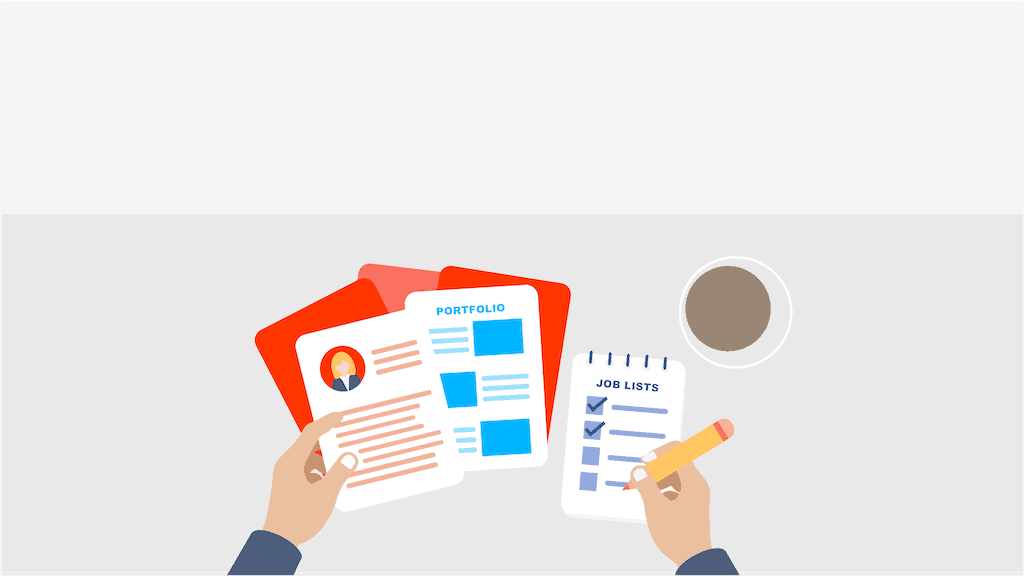
Securing a job interview is a numbers game, meaning, on average, you have to get your name in front of a certain amount of employers/recruiters before you can realistically expect a positive response.
Sources vary on this, but don’t be surprised if takes upwards of 30 applications to secure a single job interview. Considering the average job seeker sends out roughly 5 applications per week, it’s no wonder most feel their efforts aren’t paying off.
Unfortunately, that’s just the reality of current job market.
If you’re serious about finding a job, we recommend aiming for at least 10+ applications per day in order to secure at least one interview per week. If you put the numbers in, you’ll get the results out.
3) Your Resume Doesn’t Match The Position
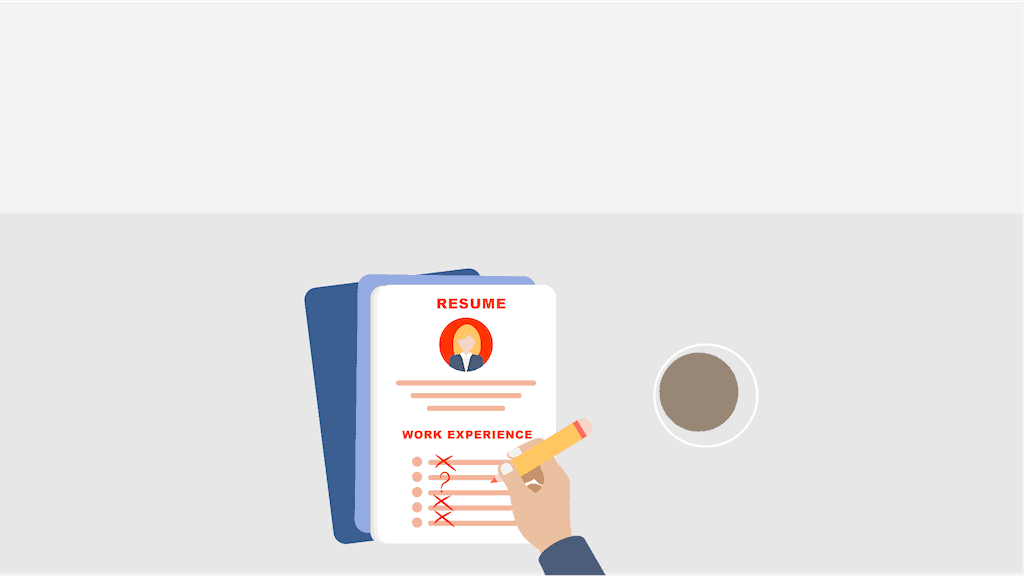
It doesn’t matter how qualified you are if those qualifications don’t match the job you’re applying for.
For example, you could have a degree in computer science, but that holds very little weight if you’re trying to get a job as an accountant. While any degree will give you brownie points, a role-relevant degree will always trump.
And it’s not just your qualifications, but your work experience too.
For example, if you have a long track record of working in catering, you’re not going to have the same skills as someone who spent the last decade in sales — which is a big deal if you’re applying for a sales position.
That doesn’t mean you have to stay firmly in your lane when applying for jobs, otherwise nobody would ever be able to change careers, which people do… all the time, in fact.
It does mean, however, that you should keep the majority of your applications on brand in order to give yourself the best chance of being considered.
4) You Have Gaps On Your Resume
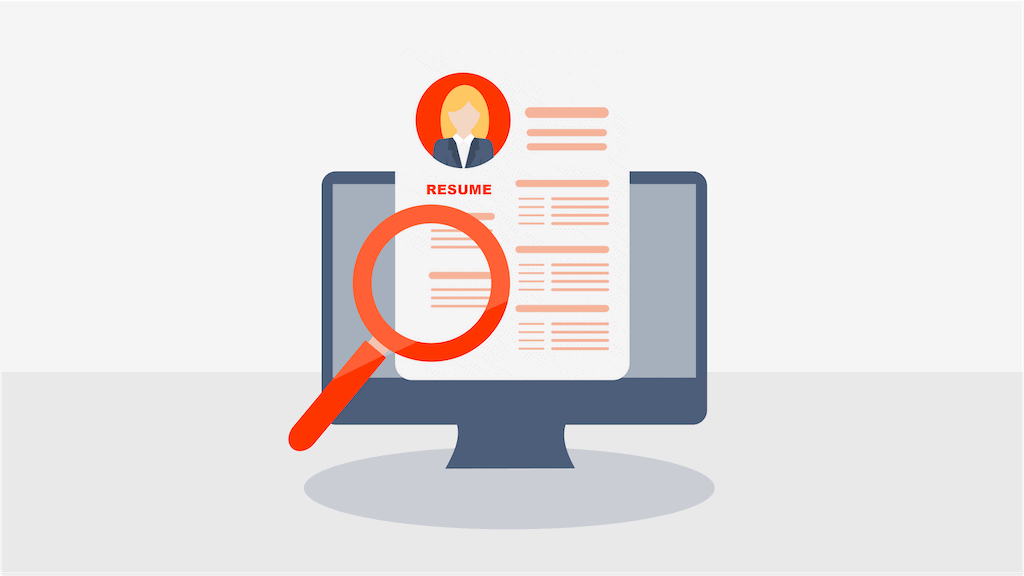
Employers like to see a clear timeline of your work history when looking at your resume.
What they don’t like to see is large, unexplained gaps. A gap is when there’s no employment listed for an extended period of time on the resume or CV (usually more than six months).
If you do happen have anything like that on your resume, you should provide a carefully worded explanation, including:
- A reason for the gap
- How long that period lasted
- And what brought it to a close
If you don’t provide this information, many employers will use this as an excuse to disqualify you from the position without giving you a chance to explain it during an interview setting.
5) Your Cover Letter Is Letting You Down
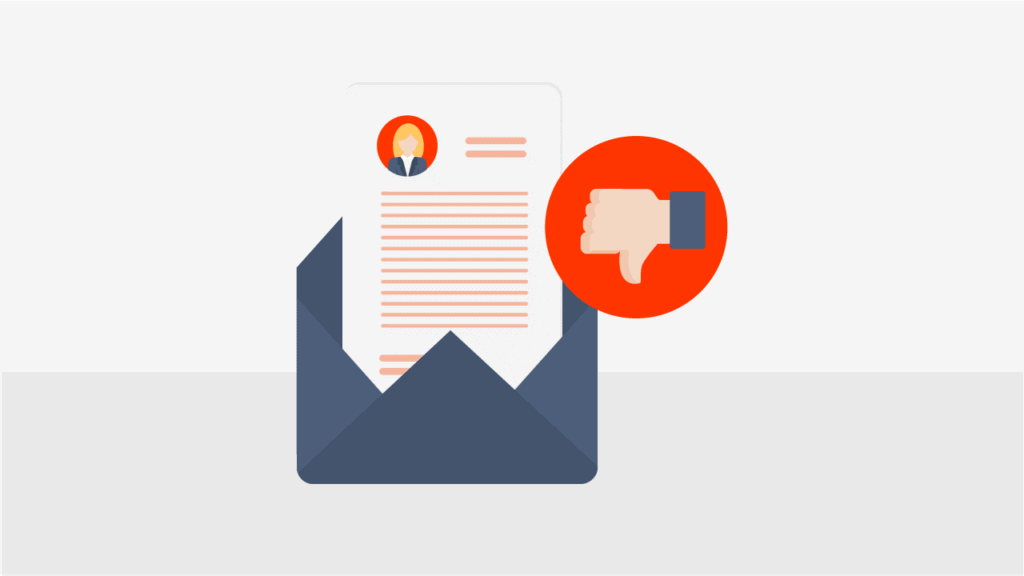
In the world of job hunting, there’s plenty of focus on having the perfect resume, but the cover letter is often overlooked.
That’s a mistake.
Your cover letter is the first thing potential employers see, and you better believe they’re judging you based on that first impression.
Nearly half of employers (49%) say they’ve been turned off by a cover letter and decided not to consider the applicant any further, according to a survey from CareerBuilder.
So if your cover letter is falling short in some way, or you’re not including one at all *gasp*, this could well be the weak link in your approach.
If You Don’t Make It Past The First Interview
Getting your foot in the door for an initial interview means you’re doing something right.
In particular, you’re applying for relevant positions with a well thought out resume and cover letter, so it’s safe to assume you don’t need to work on that area of your job search.
But if you’re consistently not hearing good news (or anything at all) after a single job interview, there are some likely causes for concern:
6) You Aren’t Dressing Appropriately
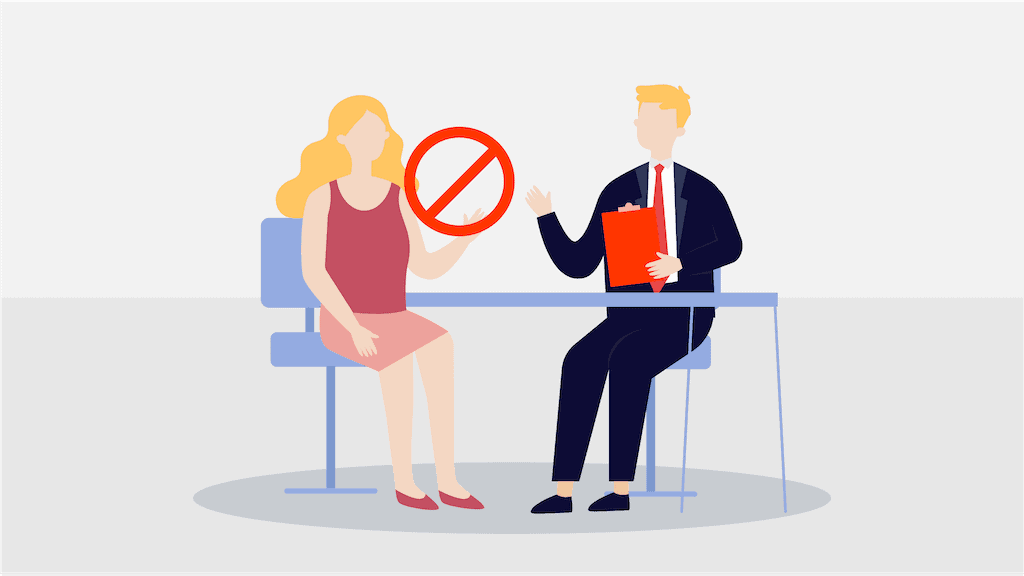
A lot of emphasis is put on how you answer questions and conduct yourself in an interview, but your appearance alone can often be a deciding factor.
In general, the correct way to dress for a job interview is to dress as if you’re going to work at the company.
For example, you should never show up to a job interview wearing a suit if the company’s dress code is casual. And you should never show up to a job interview in jeans and sneakers unless it specifically says that “dress attire isn’t required.”
If you’re really unsure on what to wear, a good catch-all option is to rock casual-smart attire, such as a button-down shirt, slacks or dress pants with a blazer and matching dress shoes.
7) Your Interview Answers Need Work

There are hundreds of possible questions you could be asked during a job interview, ranging from “what is your superpower?” to “how would you handle a difficult coworker?”.
Some of these questions are pretty unassuming in their agenda, meaning it doesn’t take much thought to provide a satisfactory answer. Others are more complex than they might appear, and are designed to see how you think on your feet.
Some interview questions are notoriously difficult, such as “what are your weaknesses?” or “can you tell me about a time you failed?”, as they force you to reveal negative traits about yourself.
The solution here is to study the most common interview questions along with sample answers, and prepare yourself ahead of time. We have most of these covered here.
8) Your Body Language Was Off

Body language is HUGE in a job interview setting, and you better believe the interviewer is paying attention to this.
To be clear, being nervous is perfectly acceptable. In fact, many interviewers will look on this positively on nervous behavior as it shows you actually care about getting the job.
What we’re talking about here is having and showing a basic understanding of good human interaction.
This includes:
- Greeting the interviewer with a handshake
- Making an effort to smile (but not excessively)
- Sitting appropriately on the chair (not slouching)
- Making eye contact at the right moments (such as when they are talking)
- Speaking clearly throughout
9) You Overlooked The Waiting Room

If you’ve ever been for a job interview, you’ll know that feeling when your brain kicks into gear as you take your seat in the chair.
But here’s the thing: A job interview doesn’t necessarily start in the interview room, but often times in the waiting room beforehand.
It’s in the waiting room where you’re likely to have your first interaction with a staff member of the company, and a bad impression here could easily make it’s way back to the person interviewing you. That’s assuming they’re not already watching you on the cameras.
The takeaway here is to assume the interview has started from the moment you enter the premises, so conduct yourself at all times as you would in the interview chair.
10) You Keep Disqualifying Yourself

Do you often say things in a job interview that makes the interviewer react out of character?
Maybe they appear surprised. Maybe they hesitate before asking the next question. Or maybe they ask you to elaborate or repeat yourself.
Whenever this happens in a job interview, there’s a good chance you said something that wasn’t received well, meaning you’ll need identify the problem and engage in some damage control.
For example, if you say something that makes the interviewer think you’re not a team player, and that’s a quality that’s important to the role, you need to elaborate and reassure them that it’s not the case.
The takeaway here is to be mindful of what you say, how you say it, and how it might affect the other persons perception of you.
If You Pass Multiple Interviews But Don’t Get The Job
If you find yourself getting interviews and consistently passing the early stages of the hiring process, this will be a much easier one to identify.
In fact, there are only a handful of possible explanations, and all of them are relatively quick fixes:
11) Your Salary Expectations Are Too High

An interviewer is well within their right to ask you about your salary expectations.
While this question can be asked in the very first interview, it’s typically saved for later in the process.
This allows them to check your salary expectations against the range they’re looking to pay for that position, but also narrow down the number of remaining candidates by eliminating any absurdly high or low expectations.
Of course, if you have a number in your head that you feel you’re worth, nobody should tell you otherwise.
12) You’re Not Being Persistent Enough
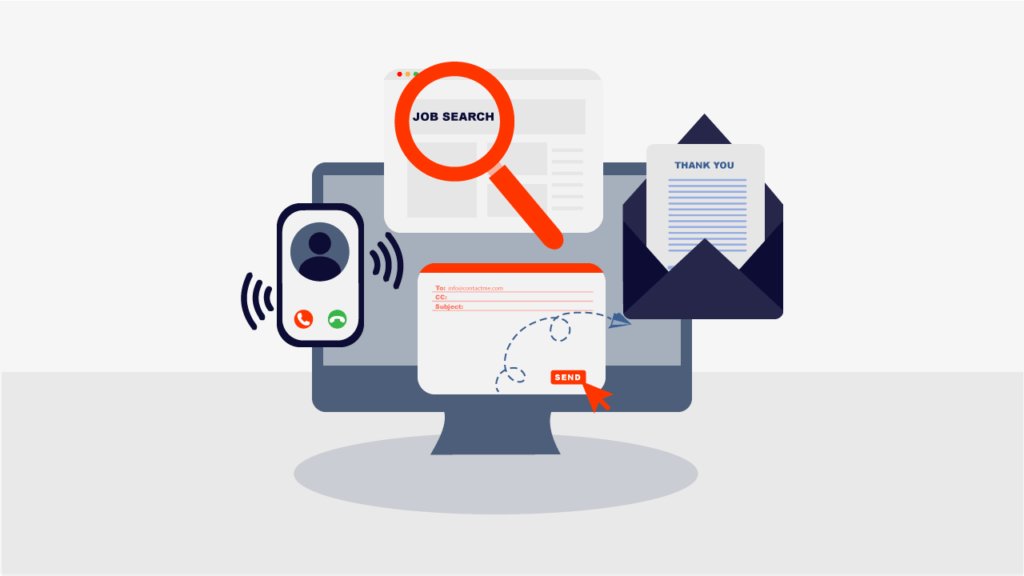
The job market is more competitive than ever, which means employers can end up with an overwhelming number of applicants when a new position opens up.
As a result, it’s not always the most qualified candidates that are prioritized, but the most persistent.
After a job interview, you should always follow up with a thank-you email and/or phone call. If you don’t hear back, follow up again after two weeks or so – but never more than once per month (if that).
If the employer still doesn’t respond to your second contact attempt in six months time it’s probably safe assume they’re not interested any longer
Persistence is key, and following up with the employer after a few weeks if you haven’t heard anything can help make your case to get an interview again when they have time in their schedule or need more applicants due on short notice.
13) Your References Let You Down
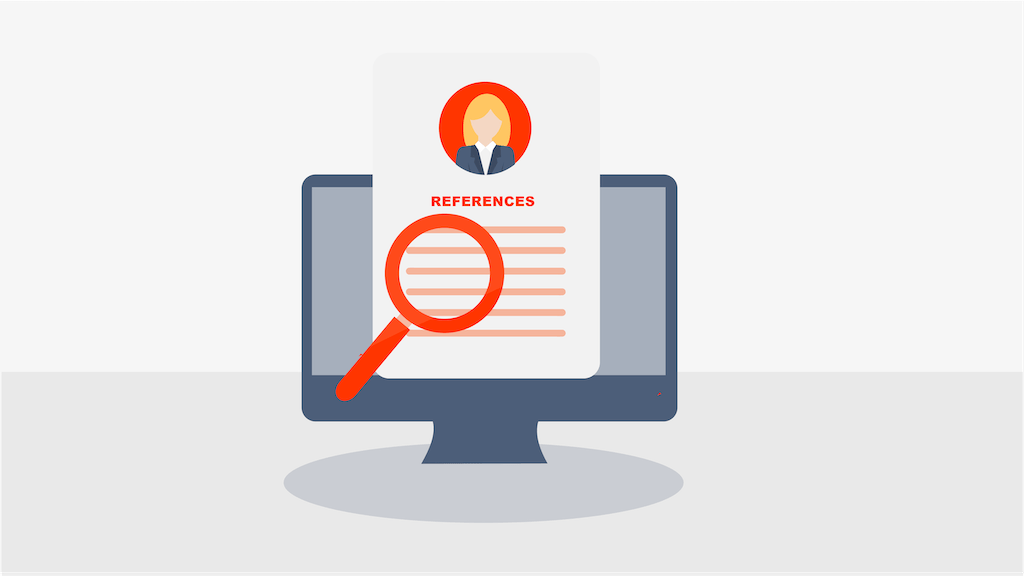
You know the references section on your resume?
Well, you’d be forgiven for thinking that most employers never actually take the time to contact these people and ask about you.
The truth is, many do check, especially once you’ve made it through several rounds of interviews, and even more so when the company is having a hard time deciding between candidates.
Pro tip: This is why it’s always a good idea to leave every position on a good note and avoid burning bridges with employers where possible. You never know when you might need a favor like this.
Make sure to include references that are current and relevant to the job you’re applying for.
How Many Of These Apply To You?
As you can see, there’s no one-size-fits-all solution for why you can’t get a job.
Everyone makes different mistakes, some worse than others. Ultimately, it’s about identifying where exactly you’re coming up short in the hiring process and making the necessary adjustments.
Keep pushing, keep applying!